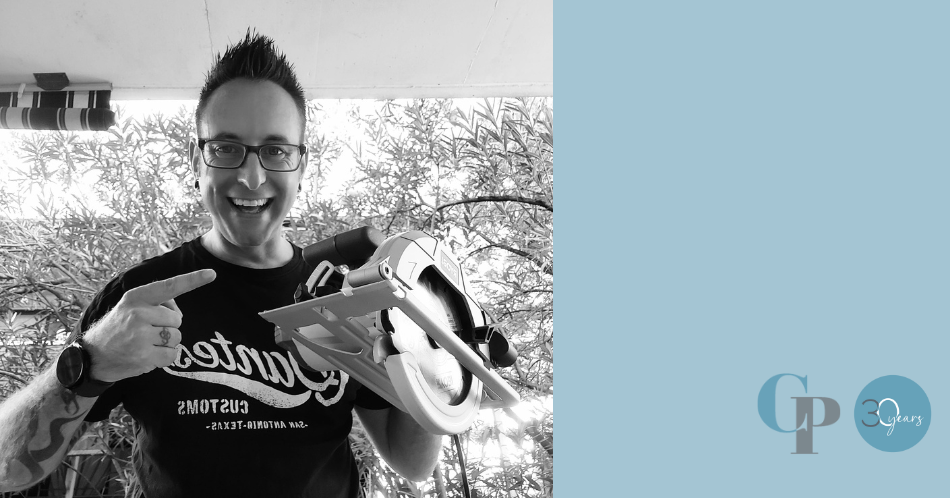Client Resources

It’s not all chocolate and carrots - there’s some real wisdom in those paws. While Easter might be best known for hot cross buns, chocolate eggs, and long weekends, there’s actually a surprising amount we can learn from the Easter Bunny - especially when it comes to job hunting. Here’s what this fluffy seasonal icon can teach us about landing your next role: 🥚 Don’t put all your eggs in one basket You’ve heard it before... and the Easter Bunny would agree. When you’re job hunting, it’s important to explore a few different opportunities rather than pinning all your hopes on one. You never know which door (or egg) will crack open the right career path. 🔍 The best opportunities are often hidden Much like a cleverly hidden chocolate egg, the perfect role isn’t always sitting right in front of you. Some of the best jobs come through networking, working with a recruiter, or applying a little creative thinking. If you’re not finding what you want on page one of the job boards... dig a little deeper! 📍Know where you’re going before you hop The Easter Bunny doesn’t just start bouncing with no plan, and neither should you. Have a clear idea of what you’re looking for: the type of role, company culture, location, flexibility, and growth potential. A little direction can help you hop in the right direction. 🧺 Preparation = success Behind every successful Easter egg hunt is someone who did a little prep. The same goes for job hunting. Tailor your CV, clean up your LinkedIn, and have a solid pitch ready for interviews. The more prepared you are, the smoother the hunt. 🤝 Help goes a long way Even the Easter Bunny gets help from their friends. Don’t be afraid to ask for support - whether it’s from a recruiter, a mentor, or a friend giving your CV a once-over. Job hunting is easier when you’re not doing it alone. So, what’s in your basket this Easter? Whether you’re actively looking or just thinking about your next move, now’s a great time to check in with your career goals. And if you need a hand? That’s what we’re here for. Happy Easter - and happy job hunting!

Hiring the right people is surprisingly similar to running a game of Dungeons & Dragons. Stay with me... I've never actually been a Dungeon Master myself, but through many hours listening to my son passionately recount his latest campaign - and as a youngster consuming the books as well as the computer games -I've realised there's something strikingly familiar about assembling a successful party and recruiting a great team. A Dungeon Master (DM, for those still blissfully unaware) is essentially a storyteller, guide, and occasional tormentor of players. Their job isn't merely rolling dice and unleashing hordes of goblins - though my son assures me this is often the highlight - but carefully assembling and guiding the right mix of adventurers. Think about it: You always want a Wizard (think your visionary tech lead). They're essential for innovative solutions, but too many Wizards and you'll have endless ideas but little organisation. You absolutely need a Barbarian - bold, fearless, and the first to dive headfirst into a challenge (like tackling that daunting client pitch). Fantastic in emergencies, but maybe not the best with delicate matters like budgets or sensitive negotiations. The Rogue? Smart, adaptable, resourceful, and perhaps a touch ethically flexible - perfect for Sales or Business Development, as long as you keep an eye on your valuables. Then there's the Cleric: supportive, empathetic, and crucial for maintaining morale. They keep everyone moving forward, usually powered by coffee and endless patience. Here are four lessons I've picked up from recruitment, inspired by my indirect adventures in D&D: 1. Expect the unexpected Prospective hires rarely follow your carefully scripted interview plans (much like adventurers ignoring the DM's meticulously crafted plot). Great recruiters, like great DMs, learn to embrace unpredictability, adapt swiftly, and think creatively on their feet. 2. Diversity Is Crucial An entire party of identical adventurers is doomed from the start. Similarly, recruiting clones might feel safe but leads to shared blind spots. Diverse teams are resilient, innovative, and cover each other's weaknesses - exactly what your business needs. 3. Communication Matters Vague instructions like "We want a Ninja Rockstar Developer Wizard" leave everyone confused. Specificity and clarity are essential. Clear, concise, and precise communication prevents misunderstandings, wasted effort, and unnecessary frustration. 4. Empathy Is Your Secret Weapon Even mighty adventurers need appreciation, and prospective hires are no different. Empathy in recruitment creates positive experiences, improves employer branding, and builds genuine relationships with those you hire. Real-World Application Consider this scenario: your business urgently needs a senior developer (the Wizard). You have two strong prospective hires: prospective hires A: Highly skilled individually but known to clash with teammates. prospective hires B: Slightly less skilled individually but known for elevating the team's overall performance. An insightful recruiter knows prospective hires B often leads to better long-term outcomes. Individual brilliance is important, but synergy and teamwork often make the difference between success and failure. So next time you're faced with a recruitment challenge, channel your inner Dungeon Master - whether you've rolled the dice yourself or, like me, learned the ropes second-hand. May your next hire roll a natural 20. And if assembling your perfect party feels like a quest too daunting to undertake alone, send a raven (or, you know, give me a call). Every Dungeon Master could use a skilled co-DM or a seasoned adventurer-for-hire to expertly navigate the recruitment campaign and ensure your party's success.

I'll kick this off by saying that I love DIY as much as the next person. The thrill of learning a new skill, the satisfaction of creating something from scratch, and the occasional moment of stepping back, admiring my handiwork, and thinking "Not bad, mate. Not bad at all." That being said, as a weekend warrior with power tools, I’ve learned a few hard truths. DIY is rarely the cheapest, fastest, or most efficient way to get things done. Sure, I could probably build my own custom cabinetry, but by the time I’ve bought the materials, watched 17 YouTube tutorials, made a few (costly) mistakes, and finally finished, I might as well have hired a professional and saved myself the blood, sweat, and swearing. And funnily enough, the same principle applies to recruitment. If the idea of writing engaging job ads (that don’t sound like a corporate snooze fest), navigating the labyrinth of digital job platforms, crafting Boolean search strings that resemble an alien language, sorting through an ocean of résumés, screening candidates, handling interviews, and gracefully managing salary negotiations excites you - then congratulations, DIY recruitment will be your new favourite hobby! But if you’d rather focus on actually growing your business instead of getting lost in the recruitment trenches, there’s a better way. At Cox Purtell, we eat, sleep, and breathe recruitment so that you don’t have to. We’ve got the networks, the expertise, and the finesse to find the right people faster - without the expensive mistakes, the hiring missteps, or the time drain. So, if you love recruitment as much as I love assembling flat-pack furniture (read: not that much), let’s have a chat. I promise you’ll save yourself a whole lot of time, money, and frustration. #DIYRecruitment #RecruitmentFails #HireSmart

The things you should consider before you look for a new job. While I am in the business of getting people new jobs I also firstly explore the motivation and reason for someone seeking a change. Humans are emotionally driven and often look to fix or change things, wanting to explore a new job can often be driven by a reaction to something that often has nothing to do with your job. It’s not easy getting a new job and people often go into this process without proper consideration. Leaving your job and starting a new role isn’t always easy. I often advise people on the below to understand the why. Is the decision to look elsewhere based on assumptions? Often this can be: I don’t think they’d give me any more money, I want a little bit of flexibility, I don’t think there is any progression. This can be based on a colleague’s experience rather than their own. I would encourage you to explore these fully rather than make an assumption. If the main reason you want to find a new place to work so you can have more flexibility to take every Weds off from 3pm to play cricket during the season, just ask. Is a move purely money driven? Almost everyone wants a pay increase with a move and rightly so. A lot of people don’t explore this with their current employer as they think it will be pointless or awkward or both. It’s much more costly to hire your replacement than increase your salary when you take into consideration time and resources spent. “It's me, hi, I'm the problem, it's me”. Have you disengaged from your job because of something else? Often, because we spend so much time at work, it can bare the brunt of our dissatisfaction. Is your job really the problem? People often slide into a self-perpetuating cycle of negativity at work, if you feel you are hard done by, you will only see and interpret events that support that. Are you going through a difficult life experience? Of course, this will affect your job and job satisfaction, but is it really fair to attribute this to something outside of your control? You can only control what you can control, It’s ok to have time off work or not be able to fully commit to your role sometimes; you are dealing with a serious life event, and work will not always be your priority. If in doubt, apply anyway- well, yes and no. Depending on the skillset of your role, don’t apply for a role as Head of Finance if you have 1 year’s experience in Accounts Payable. Many job seekers think it’s a numbers game and if you want to change to a new career you have to just apply for the job you want. But why would you waste your time putting in an application for a role you have less than 10% of the key, required experience for? I can only imagine it would be quite demoralising and time-consuming to keep applying and keep getting rejected. Some careers and role types will focus more on the personality/culture fit, which is really hard to get across on a 2-page document. Those candidates who follow up their application with a call (please do not 2 minutes after applying) stand out and often for the right reasons. Have you spoken to both your professional and personal networks? One thing we most have in common is we all have a job, perhaps you are not very curious about what your friends and families do in their day to day work but speak to them, find out what they like and dislike about their jobs, find out more about the companies they work for etc. These conversations may help you in your own decision-making progress and/or even lead to new opportunities you hadn’t considered or thought about. Think about it now, do you know what your friends even do for their jobs? Often, socially work is only discussed in a negative way, to vent or to complain, ask your friends the top 3 things they love about their job and talk to them about their path to date. Can the issue be changed? You can’t move your office location, but your communication and professional relationships with your colleagues could potentially be improved. As in life, problems tend to arise due to misinterpretation through lack of clear communication. Do you dislike your boss or your team or your role because of this, have you taken steps to improve this yourself? Sure, situations can often become untenable, but exploring this first is important.

Recruitment is a tough game, especially when you're new to the industry. There's a lot to take in - KPIs to hit, industries to learn about, relationships to build, and cold calls to make. Your first few weeks and months as a recruiter can be overwhelming as you try to grow your expertise. In this blog, I cover some key tips that will have you kicking open doors in no time! Be Authentic Everyone has their own communication style and workflow. Find what works for you and stay true to it. You'll build stronger relationships with candidates and clients when you're professional while still letting your unique personality shine through. Be Confident in What You Offer Understand the value you bring as a recruiter and don’t be afraid to promote it. If you want your clients and candidates to stick around, you must believe that you’re the problem solver they need - and make sure they know it too. Establish a Process Early On Figure out what works best for you and build consistency into your daily workflow. Having a structured approach will help you stay organized and productive. Listen to Your Colleagues Your colleagues will be your best teachers in recruitment. Pay attention to how they handle different situations - how do they build rapport quickly? How do they deliver good (or bad) news? Listen to their questioning techniques and "borrow" the best ones to refine your own style. Learn from Your Candidates Use your conversations with candidates as a learning opportunity. Even the most complicated roles become clearer when you hear about them from different perspectives. Get on the Phone You don’t build strong relationships through emails alone. Prioritise in-person or phone-based communication to maximise your influence and establish real connections. Eat the Frog Tackle the least enjoyable task first thing in the morning. That way, you start the day on a high instead of procrastinating on that one difficult phone call. Be Consistent with Business Development Make Business Development (BD) a daily habit. Consistently building relationships and pipeline will ensure long-term success. Celebrate Successes Take time to acknowledge both your personal wins and team achievements. Whether it's securing that elusive client meeting or making your first placement, celebrating successes is key to avoiding burnout. "Recruitment is a marathon, not a sprint - stay authentic, stay consistent, and success will follow."

The Art of Hiring for Culture Fit vs. Skills: Striking the Right Balance Hiring the right person for your business is about more than just ticking off skills on a CV. A candidate may have the perfect qualifications, but if they don’t align with your company’s culture, they may not thrive—or worse, they could disrupt team dynamics. On the flip side, hiring solely based on culture fit without considering skills can leave you with a great personality but an underqualified employee. So how do you strike the right balance between hiring for skills and culture fit ? Here’s how you can assess candidates beyond their CVs to make the best hiring decision for your business. Why Skills Alone Aren’t Enough Technical skills, experience, and qualifications are essential for getting the job done, but they don’t guarantee long-term success in your organisation. Here’s why: A highly skilled candidate who doesn’t align with your company values may struggle to collaborate with the team. Poor cultural alignment can lead to lower engagement, productivity, and retention rates. Some technical skills can be taught on the job, but attitudes, work ethic, and values are harder to change. Example: A brilliant recruiter who prefers solo work may not thrive in a highly collaborative, team-driven environment. Why Culture Fit Alone Isn’t Enough Hiring someone solely because they “get along” with the team can lead to issues such as: Lack of diversity in thinking – If everyone thinks the same way, innovation and problem-solving suffer. Skill gaps in critical areas – A team full of like-minded people without the necessary expertise won’t drive business growth. Subjectivity in hiring – Relying too much on “gut feel” can introduce unconscious bias, leading to less inclusive hiring. Example: A highly motivated and friendly candidate might fit in well but could struggle if they don’t have the technical expertise to execute the role effectively. Striking the Right Balance 1. Define Your Non-Negotiables Before hiring, separate the must-have skills from the trainable skills and the core cultural values from the nice-to-have personality traits . Essential skills : The minimum level of expertise needed for the job. Trainable skills : Areas where you can provide training or mentorship. Core values : The principles that guide how your team works and interacts. Tip: Ask yourself, “Would I rather have someone who’s 80% skilled but a great culture fit or 100% skilled but doesn’t align with our values?” 2. Ask Behavioural & Situational Interview Questions Move beyond generic interview questions and assess both skills and cultural alignment using real-world scenarios. For skills assessment: “Tell me about a time you solved a difficult problem at work. What was your approach?” “What tools/software do you use daily in your role, and how do you stay updated on industry trends?” For culture fit assessment: “What kind of work environment helps you perform at your best?” “Can you describe a time you disagreed with a colleague? How did you handle it?” 3. Use Work Simulations & Practical Tests Instead of just relying on what candidates say they can do, have them demonstrate it. A writing task for a content role A coding challenge for a tech position A role-play sales pitch for a business development role This ensures you’re hiring based on real ability rather than just interview performance. 4. Introduce Team-Based Interviews Culture fit doesn’t mean hiring people just like you—it’s about ensuring alignment with the company’s values. Having candidates meet different team members helps assess: How they interact with various personalities. If they bring a fresh perspective that complements the team. If they align with the team’s working style. Tip: Assign a team member to assess skills and another to assess cultural alignment to avoid bias. 5. Look for Value Add, Not Just Fit Instead of thinking, “Does this person fit in?” , ask, “How will this person enhance our team?” . Will they challenge groupthink and bring fresh ideas? Do they have a unique strength that the team lacks? Will they help evolve the culture rather than just blend in? Finally… Hiring the right person isn’t about choosing skills OR culture fit —it’s about finding the right mix of both. By taking a structured approach to assessing skills, cultural alignment, and long-term potential, you can build a team that’s both competent and engaged. Need help finding candidates who fit your business perfectly? Get in touch with our recruitment experts today!

This year, I'll be stepping into a new role which I have never done before, motherhood! It's going to be challenging, tiring, also brand new and hopefully rewarding in many ways. Although I have never done this before, everyone has reassured me that it will be my best experience yet and I’m excited for this next chapter. As I navigate my third trimester (in the middle of the Australian summer heat mind!) I have also had to prepare myself, my boss and my team to head off on Maternity Leave. I appreciate that preparing for this kind of transition can be different for everyone in many ways due to the role you work in and the industry and company you work for, however during my research and planning there are some key tips and things to consider that I have found and think would be useful to most others in a similar position to myself: 1. Give Your Employer Plenty of Notice As soon as you’re comfortable sharing the news of your pregnancy, talk to your supervisor about your plans for maternity leave. Ideally, you should give at least 3-4 months' notice to allow plenty of time for adjustments. This is especially important for companies that require you to submit formal paperwork or have specific processes in place. What to do: Set up a meeting with your manager to discuss your leave. Review your company's maternity leave policies (paid/unpaid leave, FMLA, etc.). Confirm the expected dates for your leave and any flexibility around them. 2. Create a Detailed Transition Plan A detailed transition plan is key to ensuring that your absence is as seamless as possible. It’s your opportunity to hand over your responsibilities in an organised and thoughtful way. What to do: List your current projects and deadlines. Identify key tasks and duties that will need to be handed off. Assign team members to take over specific tasks, and ensure they have all the information they need to proceed. Include login details, file locations, and any essential documents for your replacement(s). Set up meetings with colleagues to walk them through ongoing projects. Pro Tip: Try to wrap up or transition projects well before your due date to avoid a last-minute rush. 3. Update Your Calendar & Set Clear Boundaries The last thing you want is to be constantly interrupted by work emails or phone calls during your maternity leave. Setting clear boundaries and updating your calendar will help you and your team stay on the same page. What to do: Set up an out-of-office auto-reply for your email with clear instructions on how to contact someone in your absence. Block out your maternity leave dates on your calendar and notify the team of any final meetings or commitments. Designate someone to handle urgent matters or emergencies that may arise during your leave. 4. Prepare Financially for Your Leave Maternity leave often comes with a reduction in income, so it's crucial to financially prepare ahead of time. Understanding what your employer offers and how your benefits are structured can make all the difference. What to do: Review your company’s maternity leave benefits (paid vs. unpaid, duration, etc.). Set aside an emergency fund to cover the time you're on leave. If applicable, apply for short-term disability benefits or government support programs (like parental leave benefits). Plan for additional expenses, including baby-related costs, and adjust your budget accordingly. 5. Train & Empower Your Team Once you’ve identified the people who will be taking over your duties, make sure you give them the tools they need to succeed while you’re on leave. It’s not only about handing off tasks but ensuring they feel empowered and confident in managing your workload. What to do: Offer to train colleagues or share written guides on how to complete tasks or troubleshoot any issues that may arise. Provide a list of important contacts and resources they may need. Be open to questions and clarifications in the weeks leading up to your leave. Pro Tip: You might want to consider scheduling "check-in" calls or meetings (before you leave) with your colleagues to ensure they are clear on what needs to be done. 6. Plan for Post-Leave Transition Maternity leave is temporary, and it’s helpful to have a strategy in place for reintegrating back into the workforce once your leave is over. This includes planning for a balanced return to work and managing the shift back to your professional responsibilities after focusing on your baby. What to do: Discuss your return-to-work plan with your supervisor in advance, including the possibility of a phased return, flexible hours, or remote work if needed. Ensure you have a clear understanding of how much support you’ll receive during your transition back. Keep in touch with colleagues and stay updated on major changes that happen while you're away. 7. Take Care of Yourself It’s easy to get caught up in the logistics of preparing for maternity leave, but remember that you also need to take care of yourself. You’re about to undergo a significant life change, so managing your health and well-being before and after the baby arrives is vital. What to do: Schedule regular prenatal checkups and any other necessary health appointments. Take breaks when needed and make sure you're getting enough rest as your due date approaches. Don’t be afraid to ask for help with work or personal tasks during this busy time—whether it’s with your team, family, or friends. Prioritise self-care: a balanced diet, staying active (within your doctor’s recommendations), and mental wellness are crucial for managing stress and feeling your best. Preparing for maternity leave is no small task, but with a little planning and the right mindset, you can ensure a smooth transition and set yourself and your team up for success. By keeping these tips in mind and staying organised, you can confidently step away from work, knowing that everything is in good hands. Remember, maternity leave is a time for you to focus on yourself, your baby, and your family, so don’t forget to prioritise your well-being during this exciting and transformative period as well! Good Luck to everyone going through this kind of situation & see you on the other side!

As 2024 comes to a close, it's clear that the job market has evolved significantly, with employers placing a high value on a specific set of skills. These skills have been instrumental in helping organisations navigate changing industries, embrace innovation, and maintain competitiveness. Here's a closer look at the top skills that defined hiring trends in 2024: 1. Digital Literacy and Tech Savviness As industries continue to embrace digital transformation, employees with a strong understanding of technology have become indispensable. Proficiency in tools like CRM platforms, data analytics software, and even AI-driven tools is no longer just an asset but a necessity in many roles. Skills like automation implementation, digital collaboration, and data visualisation were particularly sought after this year. 2. Adaptability and Resilience If 2024 taught us anything, it's that change is the only constant. Employers sought candidates who could thrive in uncertain and fast-paced environments. Adaptable employees were seen as valuable assets, capable of pivoting strategies and learning new tools quickly when needed. 3. Communication and Interpersonal Skills Despite the rise of remote and hybrid work models, communication remains a cornerstone of workplace success. Employers prioritised candidates who could convey ideas clearly, collaborate effectively across teams, and maintain strong client relationships. Emotional intelligence also played a crucial role in leadership and team dynamics. 4. Critical Thinking and Problem-Solving As businesses faced new challenges, employers sought individuals who could approach problems methodically and devise innovative solutions. Candidates with a knack for assessing situations, analysing data, and proposing actionable strategies were highly favoured across industries. 5. Specialised Industry Expertise In fields like technology, healthcare, and finance, employers prioritised candidates with niche skills. For instance, expertise in cybersecurity, cloud computing, and AI programming were among the most in-demand technical skills. 6. Sustainability and Environmental Awareness With ESG (Environmental, Social, and Governance) initiatives taking centre stage, companies valued candidates who could contribute to sustainability goals. Knowledge of sustainable practices and green technologies became an important consideration in hiring decisions. 7. Project Management and Leadership Employers increasingly sought employees who could lead teams and manage complex projects effectively. Certifications like PMP (Project Management Professional) or Agile were highly desirable, as they signalled a candidate’s ability to deliver results efficiently. Preparing for 2025 As we move into the new year, candidates who want to stay competitive should focus on developing these key skills. Continuous learning, taking up professional development courses, and gaining practical experience in these areas can significantly improve employability. For employers, identifying these skills within your current teams and fostering them through training programs can ensure your business remains agile and ready for the challenges of 2025. Let’s make 2025 a year of growth and success together!

Recruitment: The Ignored Engine of Your Business (and Why That’s a Massive Mistake)! I’m not going to rehash the old “why you should use an Agency Recruiter” bull. This isn’t about pushing 3 rd party recruiters. Regardless of your business strategy & world view; your Recruiters are your best friend. You should be demanding the same level of craft from them that you do from your Technical teams. But you should also be viewing them with the same respect. You all talk about people being your greatest asset; but seem reluctant to give your “people specialists” a seat at the table. I won’t name the source, but a Technical contact of ours made a relevant statement which applies here: One of the hardest questions we answer for our large enterprise customers is why they should choose (name removed to protect the innocent) instead of managing their own technical services. It can seem counterintuitive that paying extra for a managed service can save you money. However, when we factor in economies of scale - particularly in regard to access to specialized knowledge and tooling - the case for managed services becomes clear . This was certainly the case for some of our clients earlier this year, where their investments paid off in the form of a quietly managed bug fix. The point is that specialist people bring horsepower to your business that you may not have. Let’s be fair, as a business owner or primary; at your base you have one of two priorities. Either you make money, or you save money. Your recruitment team should be doing the same & measured accordingly. Our results are often measured by recruitment process KPIs rather than business outcomes . I think that should change. But it’s difficult to measure without looking downstream. So how do we achieve one of those two goals for you? Revenue Generation: Revenue: We fill your revenue generating roles. Our work impacts project delays, capacity planning & pipelining, product launches etc; all with immediate consequences on your revenue. Top talent: skilled recruiters bring you people who stick, stay & deliver . Good recruiters introduce you to the people who will perform in your environment, not just the next bum in a seat. Expansion: Good recruiters aren’t just recruiting hand to mouth. They’re preparing for what is coming . They’re aiming at being able to fill roles before you are desperate . The horsepower comes from proactivity not reactivity. Cost savings: Time to hire: We bring horsepower to eliminate productivity gaps open seats cause. Lower opportunity costs: open seats cost money in productivity, missed business opportunities or delayed projects. Reduction in attrition: I’ve already mentioned stick, stay and deliver. Negotiating fair salaries: knowing what you can get for your budgets or enabling accurate business decisions on ROI. Risk mitigation: Avoiding bad hires: Don’t fall for the BS, no recruiter can eliminate the risk in hiring but a good recruiter knows how to layer in risk management as an extension of you. Reducing the risk of lost productivity and attrition. Minimising legal & compliance risks: e.g. do they have rights to work here. Strategic value: Workforce planning: anticipate & prepare for workforce needs, avoid reactive & therefore costly knee jerk hires. Market intelligence: trends, pricing, competitor strategies. Knowing who we want and where they are, makes you money. Scaling efficiency: A duplication of a few points. I could carry on, but in the interests of readability, I’ll stop there. 2 recent examples of Cox Purtell Technologies work are: A start up predicted to be influential in Health, brought on a Fractional CTO to build their enterprise product. He engaged us to build his technical leadership team (Head of Engineering already in place). We did so quickly, but also introduced them to such high calibre humans that he was able to step away early. They are well on track to delivering on their product time frames. A Consulting business relied on a Partner for their hiring. As they begin to scale further, he found himself losing hours just sifting through CVs. He engaged us as a test; we very quickly filled his first role, that success led us to subsequently helping him engage his first (non Founder) level lead. He will be able to spend more time working on his business, rather than just working in it. We will be actively discussing a Recruitment as a Service model as his demands increase. Good Recruiters/TA are demanding ; we want tools, we want to know you, we want your time and attention. BUT once you’ve made that investment , we are autonomous high powered missiles that you can leave confident that we will hit your goals. Invest in your internal TA team or bring on external Specialists like my team but do it with the intention of investing in your business . The hype around AI camouflages human skills and resourcefulness. Yes, data is the gold mine but the ability to unlock that gold mine is where your Recruiter /TA shines. Stereotypically, we are Resourcefulness personified. Recruitment isn’t just about putting bums on seats —it’s about driving the engine of your business. The talent you bring in doesn’t just keep the lights on; it’s what helps you grow, innovate , and get ahead of the competition. Whether it’s finding revenue-driving specialists, saving you time and money, or mitigating the risks of bad hires, good recruiters aren’t a luxury —they’re a necessity. Backing your recruitment team , whether it’s in-house or an external specialist crew, is about investing in your business’s future . It’s not just about hiring for today but making sure you’re set up to tackle tomorrow’s challenges before they even appear on your radar. The businesses that win aren’t the ones that treat recruitment as a cost centre—they’re the ones that recognise us as strategic weapon weapons. Give your recruitment specialists the respect, tools, and support they need, and they’ll deliver more than just hires —they’ll help you build a business that thrives . Happy hunting, call me, James Purtell or Lizzie Ritchie if you’d like to know how Cox Purtell produces outcomes for business owners like you.

As Sydney’s job market continues to evolve, the expectations of employees have shifted significantly. The "new normal" has redefined workplace priorities, with candidates now placing greater emphasis on perks that align with their personal well-being, career growth, and work-life balance. For employers looking to attract and retain top talent, understanding what Sydney employees value most can make all the difference. Here are the top five perks that are in demand among job seekers today. 1. Flexible Working Arrangements Gone are the days of rigid 9-to-5 office schedules. Flexible working arrangements—such as hybrid models, remote work options, and adjustable hours—have become a top priority for Sydney employees. According to recent surveys, many professionals view flexibility as a non-negotiable perk, with parents and caregivers valuing the ability to better balance their personal and professional lives. Additionally, cutting down on commutes has boosted productivity and reduced burnout for many workers. Tip for Employers: Offer tailored flexibility options and ensure that remote employees feel just as connected and supported as in-office staff. 2. Wellness and Mental Health Support The pandemic placed a spotlight on the importance of mental health, and employees now expect their workplaces to reflect this understanding. Wellness perks—such as Employee Assistance Programs (EAPs), access to counselling, mental health days, and fitness reimbursements—are no longer considered "nice-to-haves" but essential. Sydney employees increasingly appreciate companies that foster a culture of well-being, showing that they care about their staff beyond just performance metrics. Tip for Employers: Provide resources like mindfulness apps, gym memberships, or in-office wellness initiatives to demonstrate your commitment to staff well-being. 3. Career Development Opportunities Employees want more than just a job—they’re looking for career growth. Learning and development opportunities, mentorship programs, and clear progression paths are highly sought-after. Post-pandemic, professionals in Sydney are prioritising roles where they can upskill and future-proof their careers. Offering training in areas like technology, leadership, or industry-specific skills can not only attract talent but also increase employee retention. Tip for Employers: Invest in professional development through online courses, certifications, and cross-training programs. 4. Workplace Culture and Social Connection After periods of isolation during lockdowns, Sydney employees are looking for workplaces with positive, inclusive, and engaging cultures. A strong sense of belonging and opportunities to connect socially—whether through team-building events, volunteering days, or casual Friday catch-ups—can significantly enhance employee satisfaction. Employees also value transparent and empathetic leadership, which fosters trust and openness in the workplace. Tip for Employers: Celebrate milestones, host regular social activities, and encourage open communication to build a strong workplace community. 5. Competitive Salary and Benefits Packages While non-monetary perks have grown in importance, salary remains a critical factor in attracting top talent. In Sydney, where the cost of living is notably high, competitive compensation packages are a key draw. But employees are also paying attention to additional benefits like extra leave entitlements, bonuses, and retirement contributions. Customised perks—such as childcare support, travel reimbursements, or even "birthday leave"—can set employers apart from competitors. Tip for Employers: Stay updated on industry salary benchmarks and consider offering tailored benefits that address the unique needs of your employees. Final Thoughts In a competitive job market like Sydney’s, offering perks that align with modern employee priorities is essential for attracting and retaining the best talent. By listening to what candidates value most—flexibility, wellness, development, culture, and competitive compensation—employers can create a work environment that stands out and thrives. If you’re looking for advice on finding top-tier talent or need help refining your recruitment strategy, get in touch with us today.
JOB FINDER
RECENT POSTS

It’s not all chocolate and carrots - there’s some real wisdom in those paws. While Easter might be best known for hot cross buns, chocolate eggs, and long weekends, there’s actually a surprising amount we can learn from the Easter Bunny - especially when it comes to job hunting. Here’s what this fluffy seasonal icon can teach us about landing your next role: 🥚 Don’t put all your eggs in one basket You’ve heard it before... and the Easter Bunny would agree. When you’re job hunting, it’s important to explore a few different opportunities rather than pinning all your hopes on one. You never know which door (or egg) will crack open the right career path. 🔍 The best opportunities are often hidden Much like a cleverly hidden chocolate egg, the perfect role isn’t always sitting right in front of you. Some of the best jobs come through networking, working with a recruiter, or applying a little creative thinking. If you’re not finding what you want on page one of the job boards... dig a little deeper! 📍Know where you’re going before you hop The Easter Bunny doesn’t just start bouncing with no plan, and neither should you. Have a clear idea of what you’re looking for: the type of role, company culture, location, flexibility, and growth potential. A little direction can help you hop in the right direction. 🧺 Preparation = success Behind every successful Easter egg hunt is someone who did a little prep. The same goes for job hunting. Tailor your CV, clean up your LinkedIn, and have a solid pitch ready for interviews. The more prepared you are, the smoother the hunt. 🤝 Help goes a long way Even the Easter Bunny gets help from their friends. Don’t be afraid to ask for support - whether it’s from a recruiter, a mentor, or a friend giving your CV a once-over. Job hunting is easier when you’re not doing it alone. So, what’s in your basket this Easter? Whether you’re actively looking or just thinking about your next move, now’s a great time to check in with your career goals. And if you need a hand? That’s what we’re here for. Happy Easter - and happy job hunting!

Hiring the right people is surprisingly similar to running a game of Dungeons & Dragons. Stay with me... I've never actually been a Dungeon Master myself, but through many hours listening to my son passionately recount his latest campaign - and as a youngster consuming the books as well as the computer games -I've realised there's something strikingly familiar about assembling a successful party and recruiting a great team. A Dungeon Master (DM, for those still blissfully unaware) is essentially a storyteller, guide, and occasional tormentor of players. Their job isn't merely rolling dice and unleashing hordes of goblins - though my son assures me this is often the highlight - but carefully assembling and guiding the right mix of adventurers. Think about it: You always want a Wizard (think your visionary tech lead). They're essential for innovative solutions, but too many Wizards and you'll have endless ideas but little organisation. You absolutely need a Barbarian - bold, fearless, and the first to dive headfirst into a challenge (like tackling that daunting client pitch). Fantastic in emergencies, but maybe not the best with delicate matters like budgets or sensitive negotiations. The Rogue? Smart, adaptable, resourceful, and perhaps a touch ethically flexible - perfect for Sales or Business Development, as long as you keep an eye on your valuables. Then there's the Cleric: supportive, empathetic, and crucial for maintaining morale. They keep everyone moving forward, usually powered by coffee and endless patience. Here are four lessons I've picked up from recruitment, inspired by my indirect adventures in D&D: 1. Expect the unexpected Prospective hires rarely follow your carefully scripted interview plans (much like adventurers ignoring the DM's meticulously crafted plot). Great recruiters, like great DMs, learn to embrace unpredictability, adapt swiftly, and think creatively on their feet. 2. Diversity Is Crucial An entire party of identical adventurers is doomed from the start. Similarly, recruiting clones might feel safe but leads to shared blind spots. Diverse teams are resilient, innovative, and cover each other's weaknesses - exactly what your business needs. 3. Communication Matters Vague instructions like "We want a Ninja Rockstar Developer Wizard" leave everyone confused. Specificity and clarity are essential. Clear, concise, and precise communication prevents misunderstandings, wasted effort, and unnecessary frustration. 4. Empathy Is Your Secret Weapon Even mighty adventurers need appreciation, and prospective hires are no different. Empathy in recruitment creates positive experiences, improves employer branding, and builds genuine relationships with those you hire. Real-World Application Consider this scenario: your business urgently needs a senior developer (the Wizard). You have two strong prospective hires: prospective hires A: Highly skilled individually but known to clash with teammates. prospective hires B: Slightly less skilled individually but known for elevating the team's overall performance. An insightful recruiter knows prospective hires B often leads to better long-term outcomes. Individual brilliance is important, but synergy and teamwork often make the difference between success and failure. So next time you're faced with a recruitment challenge, channel your inner Dungeon Master - whether you've rolled the dice yourself or, like me, learned the ropes second-hand. May your next hire roll a natural 20. And if assembling your perfect party feels like a quest too daunting to undertake alone, send a raven (or, you know, give me a call). Every Dungeon Master could use a skilled co-DM or a seasoned adventurer-for-hire to expertly navigate the recruitment campaign and ensure your party's success.

I'll kick this off by saying that I love DIY as much as the next person. The thrill of learning a new skill, the satisfaction of creating something from scratch, and the occasional moment of stepping back, admiring my handiwork, and thinking "Not bad, mate. Not bad at all." That being said, as a weekend warrior with power tools, I’ve learned a few hard truths. DIY is rarely the cheapest, fastest, or most efficient way to get things done. Sure, I could probably build my own custom cabinetry, but by the time I’ve bought the materials, watched 17 YouTube tutorials, made a few (costly) mistakes, and finally finished, I might as well have hired a professional and saved myself the blood, sweat, and swearing. And funnily enough, the same principle applies to recruitment. If the idea of writing engaging job ads (that don’t sound like a corporate snooze fest), navigating the labyrinth of digital job platforms, crafting Boolean search strings that resemble an alien language, sorting through an ocean of résumés, screening candidates, handling interviews, and gracefully managing salary negotiations excites you - then congratulations, DIY recruitment will be your new favourite hobby! But if you’d rather focus on actually growing your business instead of getting lost in the recruitment trenches, there’s a better way. At Cox Purtell, we eat, sleep, and breathe recruitment so that you don’t have to. We’ve got the networks, the expertise, and the finesse to find the right people faster - without the expensive mistakes, the hiring missteps, or the time drain. So, if you love recruitment as much as I love assembling flat-pack furniture (read: not that much), let’s have a chat. I promise you’ll save yourself a whole lot of time, money, and frustration. #DIYRecruitment #RecruitmentFails #HireSmart

The things you should consider before you look for a new job. While I am in the business of getting people new jobs I also firstly explore the motivation and reason for someone seeking a change. Humans are emotionally driven and often look to fix or change things, wanting to explore a new job can often be driven by a reaction to something that often has nothing to do with your job. It’s not easy getting a new job and people often go into this process without proper consideration. Leaving your job and starting a new role isn’t always easy. I often advise people on the below to understand the why. Is the decision to look elsewhere based on assumptions? Often this can be: I don’t think they’d give me any more money, I want a little bit of flexibility, I don’t think there is any progression. This can be based on a colleague’s experience rather than their own. I would encourage you to explore these fully rather than make an assumption. If the main reason you want to find a new place to work so you can have more flexibility to take every Weds off from 3pm to play cricket during the season, just ask. Is a move purely money driven? Almost everyone wants a pay increase with a move and rightly so. A lot of people don’t explore this with their current employer as they think it will be pointless or awkward or both. It’s much more costly to hire your replacement than increase your salary when you take into consideration time and resources spent. “It's me, hi, I'm the problem, it's me”. Have you disengaged from your job because of something else? Often, because we spend so much time at work, it can bare the brunt of our dissatisfaction. Is your job really the problem? People often slide into a self-perpetuating cycle of negativity at work, if you feel you are hard done by, you will only see and interpret events that support that. Are you going through a difficult life experience? Of course, this will affect your job and job satisfaction, but is it really fair to attribute this to something outside of your control? You can only control what you can control, It’s ok to have time off work or not be able to fully commit to your role sometimes; you are dealing with a serious life event, and work will not always be your priority. If in doubt, apply anyway- well, yes and no. Depending on the skillset of your role, don’t apply for a role as Head of Finance if you have 1 year’s experience in Accounts Payable. Many job seekers think it’s a numbers game and if you want to change to a new career you have to just apply for the job you want. But why would you waste your time putting in an application for a role you have less than 10% of the key, required experience for? I can only imagine it would be quite demoralising and time-consuming to keep applying and keep getting rejected. Some careers and role types will focus more on the personality/culture fit, which is really hard to get across on a 2-page document. Those candidates who follow up their application with a call (please do not 2 minutes after applying) stand out and often for the right reasons. Have you spoken to both your professional and personal networks? One thing we most have in common is we all have a job, perhaps you are not very curious about what your friends and families do in their day to day work but speak to them, find out what they like and dislike about their jobs, find out more about the companies they work for etc. These conversations may help you in your own decision-making progress and/or even lead to new opportunities you hadn’t considered or thought about. Think about it now, do you know what your friends even do for their jobs? Often, socially work is only discussed in a negative way, to vent or to complain, ask your friends the top 3 things they love about their job and talk to them about their path to date. Can the issue be changed? You can’t move your office location, but your communication and professional relationships with your colleagues could potentially be improved. As in life, problems tend to arise due to misinterpretation through lack of clear communication. Do you dislike your boss or your team or your role because of this, have you taken steps to improve this yourself? Sure, situations can often become untenable, but exploring this first is important.

Recruitment is a tough game, especially when you're new to the industry. There's a lot to take in - KPIs to hit, industries to learn about, relationships to build, and cold calls to make. Your first few weeks and months as a recruiter can be overwhelming as you try to grow your expertise. In this blog, I cover some key tips that will have you kicking open doors in no time! Be Authentic Everyone has their own communication style and workflow. Find what works for you and stay true to it. You'll build stronger relationships with candidates and clients when you're professional while still letting your unique personality shine through. Be Confident in What You Offer Understand the value you bring as a recruiter and don’t be afraid to promote it. If you want your clients and candidates to stick around, you must believe that you’re the problem solver they need - and make sure they know it too. Establish a Process Early On Figure out what works best for you and build consistency into your daily workflow. Having a structured approach will help you stay organized and productive. Listen to Your Colleagues Your colleagues will be your best teachers in recruitment. Pay attention to how they handle different situations - how do they build rapport quickly? How do they deliver good (or bad) news? Listen to their questioning techniques and "borrow" the best ones to refine your own style. Learn from Your Candidates Use your conversations with candidates as a learning opportunity. Even the most complicated roles become clearer when you hear about them from different perspectives. Get on the Phone You don’t build strong relationships through emails alone. Prioritise in-person or phone-based communication to maximise your influence and establish real connections. Eat the Frog Tackle the least enjoyable task first thing in the morning. That way, you start the day on a high instead of procrastinating on that one difficult phone call. Be Consistent with Business Development Make Business Development (BD) a daily habit. Consistently building relationships and pipeline will ensure long-term success. Celebrate Successes Take time to acknowledge both your personal wins and team achievements. Whether it's securing that elusive client meeting or making your first placement, celebrating successes is key to avoiding burnout. "Recruitment is a marathon, not a sprint - stay authentic, stay consistent, and success will follow."



